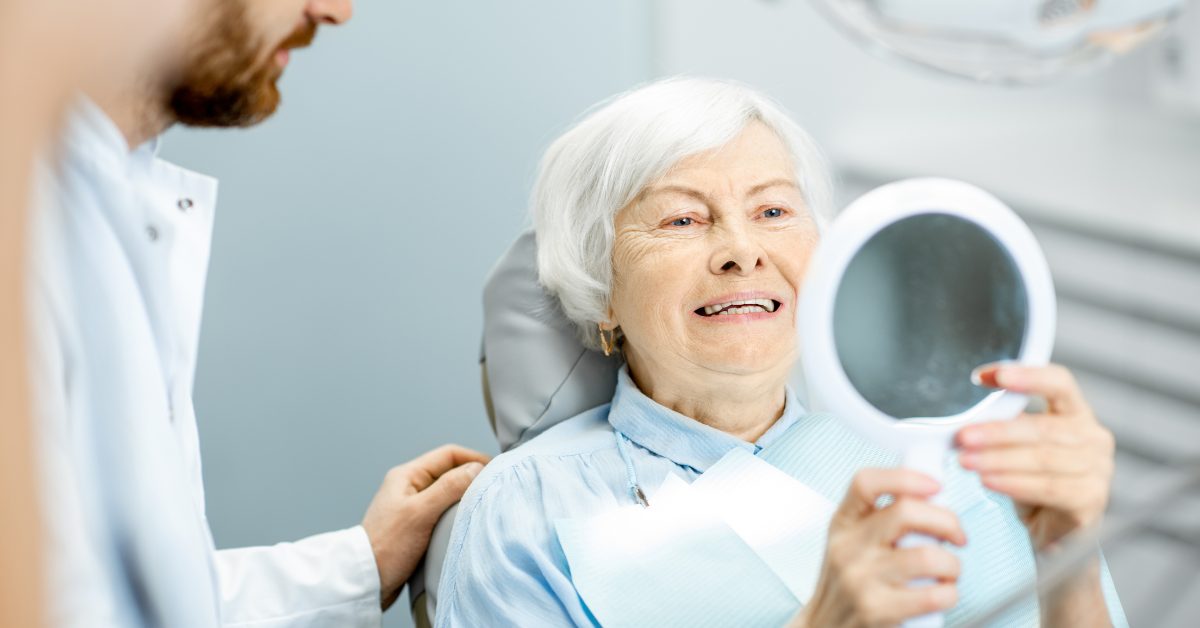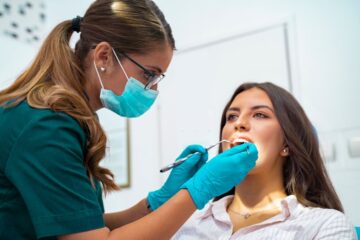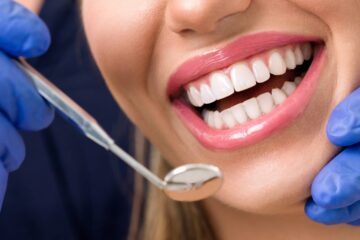You’re wincing again, aren’t you? That nagging pain around your dental implant isn’t just annoying, it’s a sign of possible infection.
But don’t fret! We’re here to guide you through identifying symptoms, understanding causes, and exploring both home remedies and professional treatments.
We’ll also arm you with preventative strategies to keep your smile infection-free in the future.
Let’s turn that grimace into a grin. Get ready to say goodbye to discomfort and hello to dental health!
Key Takeaways
– Home remedies such as salt water rinse, hydrogen peroxide rinse, clove oil application, and turmeric paste application can provide immediate relief for infection around dental implants.
– Professional treatments for infection around dental implants include regular cleanings and check-ups, oral antibiotics, antibiotic rinse or gel, professional deep cleaning, and surgical interventions for severe cases.
– Prevention strategies for future infections include regular brushing and flossing, regular dental check-ups and cleanings, proper implant maintenance, hygiene education, and understanding the importance of good oral hygiene and the risks of neglecting it.
– Signs of infection around dental implants include persistent pain, redness, swelling, fever, and changes around the implant site. Causes of infection can include bacteria, fungi, or viruses infiltrating the surgical site, poor oral hygiene, introduction of bacteria during dental procedures, overuse of antibiotics leading to resistance, and systemic conditions compromising the immune system.
Identifying Signs of Infection
Start by recognizing the signs of an infection around your dental implant, which may include persistent pain, redness, swelling or fever. These infection symptoms shouldn’t be ignored as they can lead to significant complications if left untreated. Pay close attention to any discomfort or changes around the implant site, and don’t hesitate to reach out to your dentist immediately.
In diagnosing an infection, your dentist may utilise various diagnostic methods. The most common diagnostic tools include dental radiographs or X-rays, which can reveal any issues not visible to the naked eye. Your dentist might also conduct a detailed clinical examination to assess the health of the surrounding gum and bone. A sample may be taken from the area for microbiological testing to identify the type of bacteria causing the infection.
Remember, early detection is crucial in treating any dental implant infection. It’s better to err on the side of caution than to wait and risk further issues. It’s also essential to understand that an infection isn’t a reflection of your oral hygiene practices, but is often a result of various factors.
In the next section, we’ll delve into understanding the causes of infection.
Understanding Causes of Infection
To effectively treat an infection around your dental implant, it’s critical you understand the potential causes. The main culprits are often infection sources such as bacteria, fungi, or viruses that can infiltrate the surgical site during or after the procedure. These microorganisms can adhere to the implant’s surface, multiply, and form a biofilm, leading to an infection.
Poor oral hygiene is another significant contributing factor. If you’re not meticulously cleaning around your implant, you’re providing a hospitable environment for these harmful microbes. Dental procedures can also introduce bacteria into your mouth, which may find their way to your implant site.
Overuse of antibiotics is a serious concern, leading to antibiotic resistance. This resistance can make it challenging to treat infections effectively. If the bacteria causing your infection are resistant to the antibiotics you’re using, the infection can persist and even worsen.
Moreover, systemic conditions like diabetes or a suppressed immune system can increase your vulnerability to infections. These factors compromise your body’s ability to fight off infection-causing microbes, making your dental implant a potential site for infection.
Understanding these causes is the initial step towards effective treatment and prevention of infections around dental implants.
Home Remedies for Immediate Relief
While you’re brushing up on the causes of infection, you can also take immediate steps at home to alleviate discomfort and potentially slow the progression of the infection around your dental implant. The implementation of DIY antiseptics and natural antibiotics can provide immediate relief and may contribute to long-term healing.
DIY Antiseptics:
* Salt Water Rinse: Dissolve half a teaspoon of salt in 8 ounces of warm water. Rinse your mouth with this solution several times a day. Saltwater is a natural disinfectant that can help reduce inflammation and fight oral bacteria.
* Hydrogen Peroxide: Mix equal parts of 3% hydrogen peroxide and water. Swish around your mouth for 30 seconds and spit it out. Never swallow this solution as it can be harmful.
Natural Antibiotics:
* Clove Oil: Apply a few drops of clove oil to a cotton ball and dab it onto the affected area. Clove oil has antibacterial and analgesic properties that can help numb the area and fight infection.
* Turmeric Paste: Mix turmeric powder with water to make a paste. Apply this paste around the infected implant area. Turmeric is known for its potent anti-inflammatory and antibacterial properties.
Professional Treatments Available
When you’re dealing with a dental implant infection, professional treatment options can provide you with effective, long-term solutions. Implant maintenance is a crucial part of these treatments, as it ensures the health and longevity of your dental implant. Regular cleanings and check-ups with your dentist help to prevent infections and catch any early signs of issues.
If an infection does occur, antibiotic therapies are often the first line of defence. Your dentist may prescribe oral antibiotics to combat the infection internally. In more severe cases, they might recommend an antibiotic rinse or gel applied directly to the infected area.
In addition to antibiotics, professional deep cleaning, also known as scaling and root planing, might be necessary. This procedure involves removing plaque and tartar from deep under the gum line, around the implant.
In extreme cases, surgical interventions could be required to treat the infection. This might involve removing the implant, treating the infection, and then replacing it.
Prevention Strategies for Future Infections
In light of your recent infection, it’s crucial that you adopt measures to prevent future issues with your dental implant. Two key factors in preventing infection recurrence are Implant Maintenance and Hygiene Education.
Proper Implant Maintenance can make the difference between a healthy implant and a recurring nightmare.
* Regular brushing and flossing:
– Brush twice daily with a soft-bristled toothbrush
– Floss at least once a day, making sure to carefully clean around the implant
* Regular dental check-ups and cleanings:
– Schedule regular visits to your dentist for professional cleanings
– Have your implant checked regularly to ensure it’s in good condition
Hygiene Education is also paramount. The more you know about oral hygiene, the better equipped you’ll be to prevent infections.
– Understand the importance of good oral hygiene
– Learn about the potential risks of neglecting your oral health
– Learn proper cleaning techniques
– Ask your dentist to demonstrate the best way to clean around your implant
Frequently Asked Questions
How Long Does It Typically Take to Recover From an Infection Around a Dental Implant?
Recovery from an infection around your dental implant varies. Depending on infection progression and your body’s response, it generally takes 1-2 weeks. Your dentist’s instructions and good oral hygiene speed up the recovery process.
Can an Infected Dental Implant Cause Other Health Problems?
Yes, an infected dental implant can indeed cause other health problems. It’s like a ticking time bomb. Infection symptoms may lead to implant rejection, spreading bacteria to other parts of your body.
What Are the Potential Complications if an Infection Around a Dental Implant Is Left Untreated?
If you leave an infection around a dental implant untreated, you’re risking potential complications. These can shorten your implant’s lifespan and require more extensive treatment for infection prevention in the future.
How Can I Maintain Good Oral Hygiene With Dental Implants?
You can maintain good oral hygiene with dental implants by using implant specific toothpaste and following proper implant cleaning techniques. Regular flossing, rinsing, and professional cleanings are also important to prevent infections.
Are There Any Dietary Restrictions to Follow When Dealing With an Infection Around a Dental Implant?
You should avoid hard or crunchy foods that may irritate the infected area. Prioritise soft, nutrient-rich food for infection prevention. Good implant care also involves staying hydrated and limiting sugary drinks.
Conclusion
In closing, it is important to remember that up to 10% of dental implants fail due to infection. Identifying signs of infection early is crucial for timely treatment. Understanding the causes of implant infection can also help in preventing it.
In addition to early detection and understanding, using home remedies can provide immediate relief from implant infections. However, it is important to note that professional treatments are indispensable for effectively treating and resolving implant infections.
Lastly, prevention is key in maintaining the health of dental implants. It is important to stay vigilant and proactive in maintaining good oral hygiene. Regular brushing, flossing, and dental check-ups can help keep your pearly whites infection-free.





